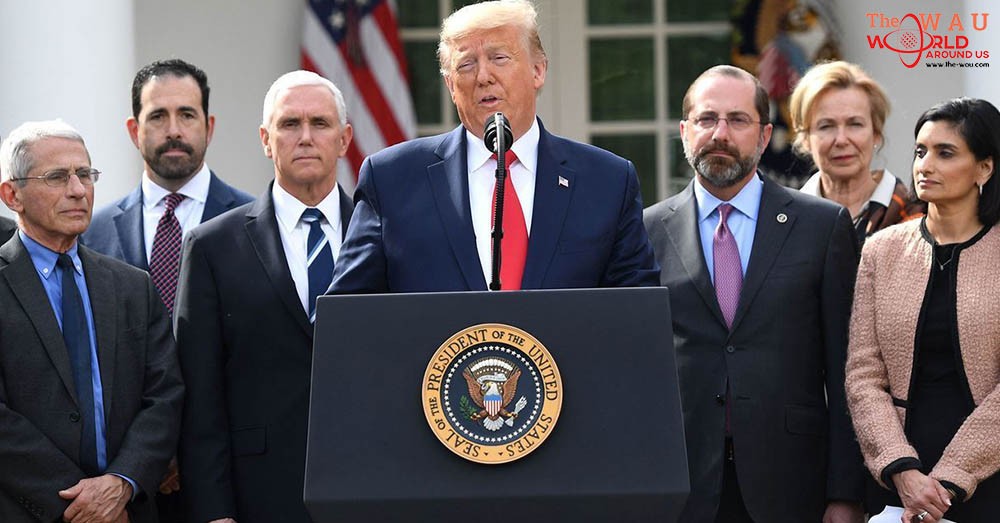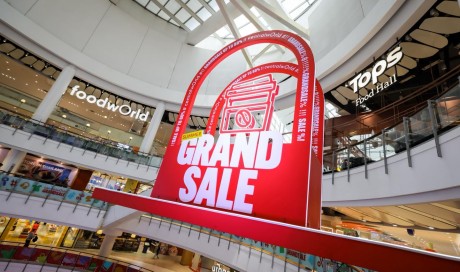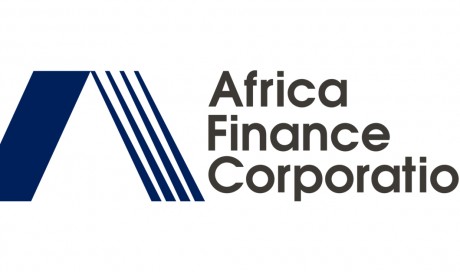When President Trump announced Friday that Google was developing a website for Americans to find out where they could get tested for the novel coronavirus, the details of the project remained unclear. There was no landing page, no press release from Google, and no announcement from any of the tech giant’s executives.
The administration promised more would be coming over the weekend. In the meantime, news outlets reported the website in question was much more limited in scope, and was being developed not by Google but by another Alphabet subsidiary called Verily. As WIRED first reported, Google hadn’t been aware it would be mentioned by the president at all. Since then, however, the company said that it will launch a coronavirus website on Monday, but not one like what the president described.
A White House press briefing Sunday did not deliver much more information—or clarity. Instead, Trump excoriated the press, claiming that Google’s tweets had “substantiated” his Friday remarks and that CEO Sundar Pichai had personally called to apologize about the “fake news.” Google declined to comment on the president’s statements about Pichai. The White House press office did not dispute WIRED’s reporting when reached for comment leading up to the briefing and declined to comment ahead of the event Sunday.
Trump himself gave no further details about the Google site. Vice President Mike Pence referenced it briefly: “At some point early in the week we will have a website that goes up, the purpose of which will be for people to go and first fill out a questionnaire,” he said. Pence added that the White House was working with other tech companies as well. He also mentioned the possibility of adding testing site locations but provided no timeline.
A blog post written by Google’s CEO and published Sunday does not mention a questionnaire or testing. “We’re partnering with the US government in developing a website dedicated to COVID-19 education, prevention, and local resources nationwide,” Pichai wrote. “We’ll be rolling out an initial version of the website late Monday, March 16, and we’ll continue to enhance and update it with more resources on an ongoing basis.”
“Literally the team has been working around the clock since Friday,” Pence said, which is the day Trump blindsided Google with his announcement in the first place.
Significantly more detail was provided by California governor Gavin Newsom, who unveiled his state’s partnership with Verily in a press conference minutes before the White House briefing began. “We are very encouraged by this partnership, very enthusiastic to finally announce it—I know there’s been some conversations about it in the media,” Newsom said. Verily published an announcement on its own website Sunday as well. "The tool will triage people who are concerned about their Covid-19 risk into testing sites based on guidance from public health officials and test availability,” it says.
In his press conference, Newsom described a web portal with “specific questions” to determine whether someone needed to be tested and direct them to a nearby mobile testing site accordingly. When it launches Monday, the portal will work with two pilot sites in the Bay Area, one in Santa Clara County and one in San Mateo County. Newsom indicated those pilots “will significantly expand to other parts of the state” but also did not give a timeline.
“We hope that this partnership can scale, and we believe it will be a national model,” the governor said. At the same time, he emphasized, “It’s just a test. And so I just want to remind people of that framework and not promote it for something that it isn’t.”
What Trump and other White House officials described Friday sounded significantly further along and much more widespread. As part of a broader public-private partnership, the president claimed that 1,700 Google engineers were working on a website for Americans to access coronavirus testing information and that they had made “tremendous progress.” Deborah Birx, a public health expert tapped by the White House to help coordinate the administration’s response to the virus, held up a flowchart depicting how the site was supposed to work. Users would need to log in to a screening tool, which would assess their symptoms. If they qualified for a coronavirus test, the website would direct them to “drive thru” locations where they could get one. The same site would also inform people whether they tested positive for the illness.
“It’s going to be very quickly done, unlike websites of the past, to determine whether a test is warranted and to facilitate testing at a nearby convenient location,” Trump said Friday to reporters in the Rose Garden. The president was surrounded by CEOs from the major corporate partners, including Target, Walgreens, Walmart, and CVS. Noticeably, no executives from Google were present.
In fact, Google was not aware it was supposed to be working on a project anything like what Birx described, a source at the company told WIRED. The flowchart itself reportedly came from the Verily program; California officials were also surprised at its appearance Friday, according to CNN.
Hours after Trump’s press conference, Google released a statement describing a project far more modest than what the president had suggested.
The New York Times later reported that an executive from Verily told Trump’s senior adviser and son-in-law Jared Kushner about the Bay Area pilot program. From there, Trump got the idea that Google was working on a coronavirus site. The 1,700 Google engineers the president cited were, according to the Times, the number of volunteers who had signed up to help with the project after it was mentioned by CEO Pichai. That figure was then communicated to Kushner.
The confusion surrounding the Google site underscores the broader chaos that has been a hallmark of Trump’s coronavirus response. While arming people with information about the disease and how to get tested is a laudable aim, the cloud of misleading statements from the president hampers efforts to provide the kind of clear communication that is essential in a time of crisis. Important questions remain, too, about what sort of privacy measures Google or Verily will put in place when collecting this information, and what role the other tech companies Pence referenced will play.
Soon more Covid-19 testing will be available. Eventually, so might a site that tells you where to get it. But unless you live in the Bay Area, Trump’s Friday promises remain unfulfilled.
Share This Post















